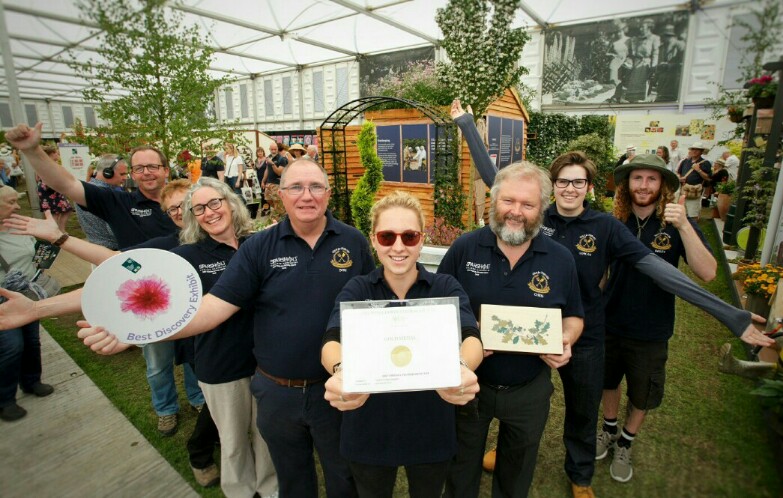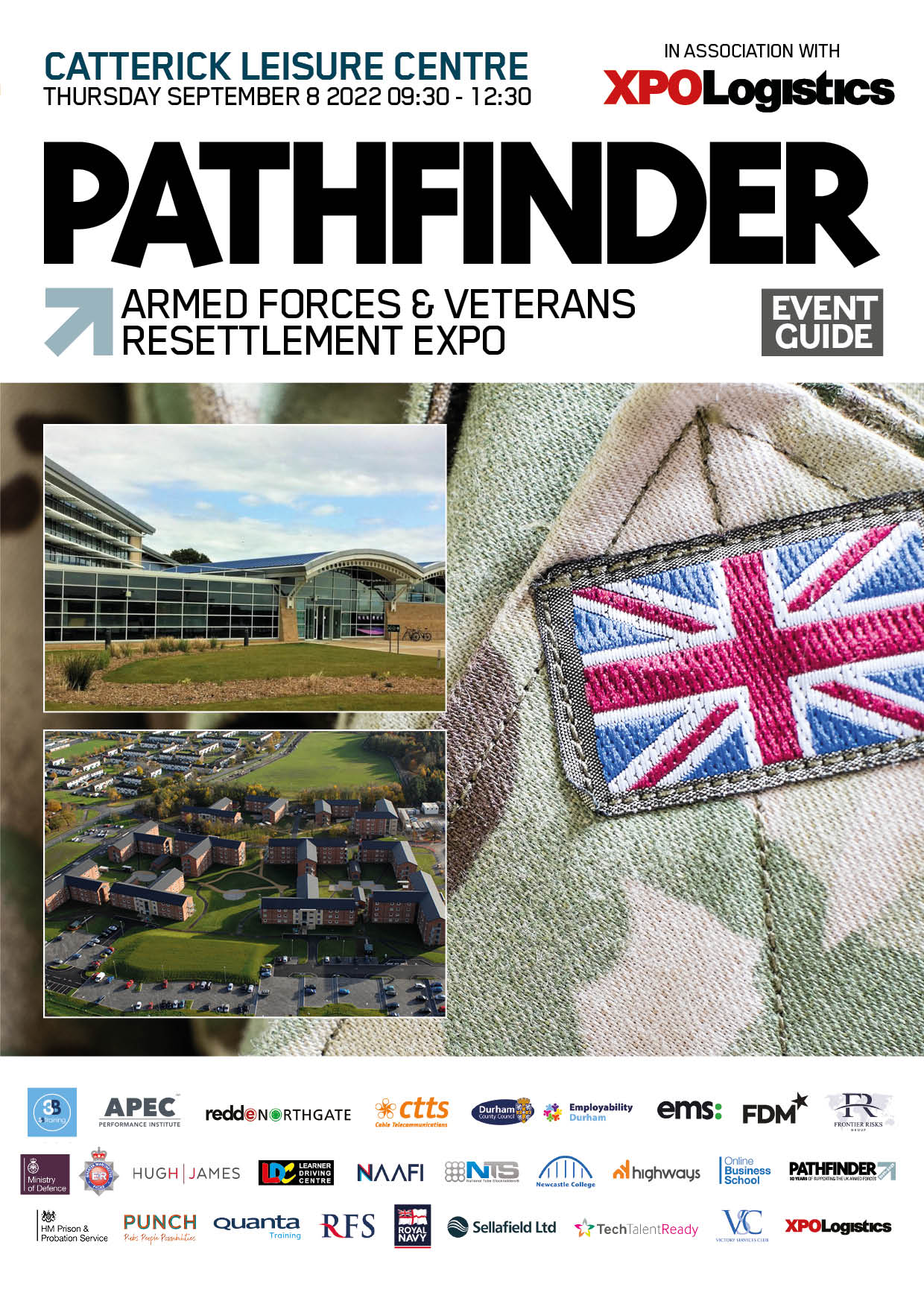Chris Pickering spent the last two years of his 24-year Army career meticulously planning for a move into civilian life, but it was a chance click of a mouse that eventually led to him becoming one of the first recruits at a new Marks & Spencer distribution centre in the East Midlands…
“I was browsing the social networking site LinkedIn when I came across Remploy’s Armed Forces & Veterans Service,” explains Chris who contacted Kevin Smallwood, Remploy’s Armed Forces & Veterans National Partnership Manager, about a vacancy for a logistics coordinator at M&S’s new Castle Donington site.
Remploy has been chosen by M&S as its recruitment partner to fill vacancies at the 900,000 sq ft distribution centre, which will employ about 1,000 people in a range of roles when it opens in early 2013.
“I owe Kevin and Remploy a huge debt of gratitude – they opened the door for me to this job,” adds the former Regimental Quartermaster Sergeant who started his new career at M&S last autumn, just weeks after leaving the Army.
Recalling his pragmatic approach to job searching Chris says: “The first thing you need to do when you know your army career is coming to an end is decide the area of employment you want to go into – but you need to have a back-up plan, just in case things don’t go entirely to plan. If you put all your eggs into one basket you can fall flat on your face.
“The next step is to look at the area where you want to live and match it to the job you want to do. I knew I wanted a career in logistics, so there wasn’t much point in moving my family to the Isle of Skye!”
Chris and his wife chose to set up home in Stoke-on-Trent in order to be close to family and friends. It was only then that he looked at the type of support that was available to help him make the life-changing move back into civilian life.
“Resettlement training is available through Career Transition Partnership (CTP) or you can do your own thing with some financial support from the army,” he says. “I decided to take the latter path because the training I wanted wasn’t available through CTP. For me, training was very important because although I had gained qualifications in logistics in the army, they wouldn’t have carried any weight in civilian life”
Chris’s Army career had taken him around the world, including the Falkland Islands, Kenya, a six months attachment in Belize and three years in Canada as a training warrant officer with Combined Services Support, Battle Group Level.”
He served in the first Gulf War but didn’t see action in Afghanistan although he says: “I would have gone there at drop of a hat because doing something like that provides the chance to do the job you are trained for.”
Sensing a need for further explanation he quickly adds: “The only way I can describe it is if you have trained to be a plumber you don’t want to be told you are going to be a bricklayer.”
When his Army career was coming to an end, Chris fired off his CV to training organisations, hopeful of finding a quick route into a new career.
“I was very nervous about being unemployed simply because I hadn’t been out of work since I started as an apprentice bricklayer when I was 16,” he admits. “I joined the army a year and a half later because the building trade was on its knees at the time and I wanted to grasp the opportunities that life has to offer – and for me the army was the best way of doing that.”
He never regretted the decision. “I enjoyed army life. The camaraderie is the main thing, you share a common bond with colleagues, you have shared goals." He signed up for 24 years and although he had a chance to extend his stay he felt the time was right to move on. “If I had stayed it would have been harder to find a job when the time eventually came to move into civilian life,” he concludes.
Reflecting on his service career with a mixture of satisfaction and pride, he adds. “The army instilled an ethos in me about the way to treat people. You need drive and vision but you have to take people with you. That way they will want to work for you and help you get where you want to be."
Having made contact with Remploy – albeit it not entirely as planned- Chris’s route into work at Marks & Spencer was plotted with smooth professionalism by the specialist employment services firm, which has a proud history of supporting members of the armed forces into work (Remploy was originally established to provide work for wounded service personnel returning from the Second World War).
As well as helping people like Chris, Remploy’s Armed Forces & Veterans Service targets wounded, injured and sick service leavers and disabled veterans and provides them with a range of specialist employment services at more than 60 high street recruitment branches and offices.
Candidates receive one-to-one support from specially trained ‘Armed Forces Champions’.
“Our Armed Forces Champions are highly trained and experienced in identifying transferable skills and tackling the specific barriers veterans and injured, wounded and sick service leavers face when looking for a sustainable career,” says Matt Fellows, Remploy’s Head of Strategic Development, Armed Forces.
Now firmly established in his new role, Chris sees similarities between his past and current employer. “The Army and Marks & Spencer are both big, well-oiled machines that require teamwork to keep them working efficiently. The work ethic in our department is based on passion, drive and commitment, none of which can be taught.”
For more information about Remploy’s Armed Forces & Veterans service, contact Matt Fellows, Head of Strategic Development, Armed Forces on 07977 436355





